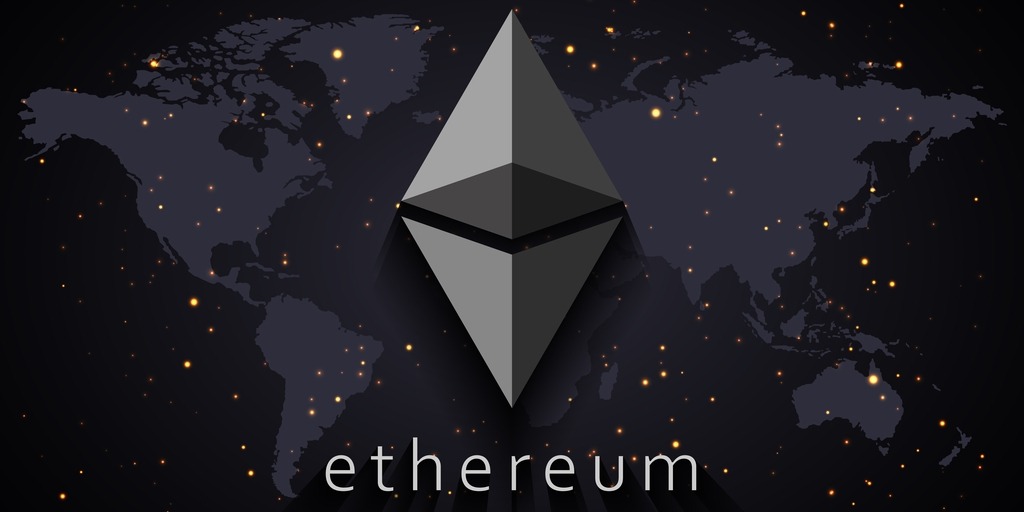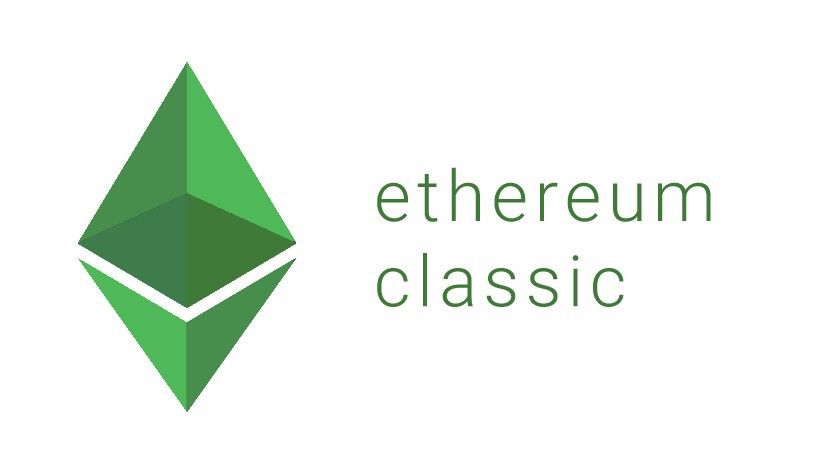Are Intriguing Ether ETFs A Welcoming Change In 2024: Boon Or Bane for the Crypto Ethos?
The recent green light for Ether ETFs in the US has ignited a firestorm of debate within the cryptocurrency community. Proponents hail it as a gateway to mainstream adoption, while others fear it might erode the very essence of crypto – decentralization and fostering innovation.
What are Ether ETF?
Ether ETFs (Exchange Traded Funds) are a type of investment vehicle that tracks the price of Ether, the native cryptocurrency of the Ethereum blockchain platform. Unlike directly buying Ether on a cryptocurrency exchange, ETFs offer a more traditional investment approach with potential benefits like:
-
Easier access: You can buy and sell Ether ETFs through a brokerage account similar to how you would trade stocks. This eliminates the need to set up a separate cryptocurrency exchange account and navigate the complexities of digital wallet management.
-
Regulation: Ether ETFs are subject to regulations by financial authorities, potentially offering a layer of security and oversight compared to the less regulated world of cryptocurrency exchanges.
-
Diversification: Some Ether ETFs might hold a basket of assets related to the Ethereum ecosystem, not just Ether itself. This can provide a degree of diversification within your portfolio.
However, it’s important to remember some limitations of Ether ETFs:
-
Not Owning the Underlying Asset: Unlike directly owning Ether, with an ETF, you don’t technically own the underlying cryptocurrency. You own shares in the fund, which tracks the price of Ether.
-
Fees: ETFs typically have management fees associated with buying, holding, and selling the fund.
-
Limited Availability: As of May 2024, Ether ETFs are still a relatively new concept and might not be available on all brokerage platforms. Regulatory approval is still ongoing in some jurisdictions.
Overall, Ether ETFs offer a potentially easier and more regulated way to gain exposure to the price movements of Ether. However, it’s crucial to understand the limitations and conduct your own research before investing.
Top 10 Reasons Ether ETFs Are a Boon to the Crypto Ethos
The emergence of Ether ETFs (Exchange Traded Funds) in 2024 has sparked debate within the cryptocurrency community. While some view them with skepticism, Ether ETFs hold immense potential to benefit the core principles of the crypto ethos. Here’s why:
1. Increased Accessibility and Mainstream Adoption:
- Traditional Investment Channels: Ether ETFs allow investors to access Ether through familiar brokerage accounts, eliminating the need for complex cryptocurrency exchanges and digital wallet management. This opens the door to a wider range of investors, accelerating mainstream adoption of Ether and the Ethereum ecosystem.
2. Enhanced Liquidity and Market Stability:
- Institutional Capital Inflow: Ether ETFs attract institutional capital, which injects significant liquidity into the Ether market. This increased liquidity can lead to smoother price movements and potentially reduce volatility, a major hurdle for mainstream adoption.
3. Regulatory Oversight and Investor Protection:
- Reduced Counterparty Risk: Unlike unregulated cryptocurrency exchanges, Ether ETFs are subject to financial regulations. This oversight offers investors a layer of protection against fraud and manipulation within the market.
4. Legitimization and Credibility:
- Validation by Traditional Finance: The approval of Ether ETFs signifies a level of validation by traditional financial institutions. This can boost overall confidence in the legitimacy and long-term potential of Ether and the broader cryptocurrency space.
5. Potential Gateway to Decentralized Finance (DeFi):
- Exposure to DeFi Innovation: The success of Ether ETFs could pave the way for similar instruments targeting other aspects of the Ethereum ecosystem, like DeFi products. This can bring greater visibility and potential investment opportunities within the exciting realm of DeFi.
6. Broader Recognition and Understanding:
- Sparking Dialogue and Education: Ether ETFs generate mainstream media attention and discussion, educating the public about the potential of blockchain technology and the purpose of Ether. This can dispel misconceptions and foster a more informed understanding of cryptocurrency.
7. Fostering Innovation and Development:
- Fueling Ethereum Ecosystem Growth: The influx of capital from Ether ETFs can fuel further innovation and development within the Ethereum ecosystem. This can lead to advancements in scalability, security, and the creation of new applications on the Ethereum blockchain.
8. Strengthening Decentralization:
- Distribution of Ownership: The wider distribution of Ether ownership through ETFs can lead to a more decentralized network, reducing the risk of any single entity controlling a significant portion of the Ether supply. This aligns with the core principle of decentralization within the crypto ethos.
9. Potential Catalyst for Regulatory Clarity:
- Constructive Dialogue with Regulators: The success of Ether ETFs can open doors for constructive dialogue between the cryptocurrency industry and regulators. This can lead to the development of clearer and more supportive regulatory frameworks for the entire cryptocurrency space.
10. A Stepping Stone to a More Inclusive Future:
- Lowering Barriers to Entry: Ether ETFs can make cryptocurrency investing more accessible to a wider audience, particularly those who might be hesitant about the complexities of managing digital wallets and navigating cryptocurrency exchanges. This fosters a more inclusive financial system.
A Catalyst for Growth and Progress
While Ether ETFs might not be a perfect solution, they represent a significant step forward for the crypto ethos. By increasing accessibility, enhancing stability, and fostering a more legitimized environment, Ether ETFs have the potential to propel the Ethereum ecosystem and the entire cryptocurrency space towards a future of wider adoption, responsible innovation, and a more inclusive financial landscape.
Top 10 Reasons Ether ETFs Might Contradict the Crypto Ethos
The emergence of Ether ETFs (Exchange Traded Funds) in 2024 has ignited a firestorm of debate within the cryptocurrency community. While some hail them as a gateway to mainstream adoption, others worry they contradict the core principles of the crypto ethos. Here’s a closer look at 10 reasons why Ether ETFs might be a bane to the crypto ethos:
1. Centralization and Control:
- Power Shift to Traditional Finance: Ether ETFs place control over Ether investment back in the hands of traditional financial institutions. This centralizes control, potentially limiting the innovation and disruption envisioned by the crypto ethos.
2. Potential for Manipulation:
- Susceptibility to Wall Street Games: Traditional financial markets are susceptible to manipulation by large institutions. Ether ETFs could expose the Ether price to similar manipulation tactics, undermining the ideal of a free and open market.
3. Injects Bureaucracy and Regulations:
- Compliance Over Innovation: The regulatory requirements surrounding ETFs can stifle the rapid innovation that thrives in the permissionless and decentralized world of cryptocurrency. Bureaucratic hurdles could slow down progress within the Ethereum ecosystem.
4. Detracts from the Power of Self-Custody:
- Third-Party Reliance: Ether ETFs eliminate the need for individuals to hold their own Ether in digital wallets. This removes an element of empowerment and self-custody, a cornerstone of the crypto ethos where users control their own financial assets.
5. Masked Volatility and Risk Reduction (Misleading Narrative):
- Underlying Volatility Remains: While ETFs might offer a smoother trading experience, the underlying price of Ether can still be volatile. This could create a false sense of security and mask the inherent risks associated with cryptocurrency investments.
6. Profits Over Purpose:
- Alignment with Traditional Financial Goals: The focus of Ether ETFs might shift the narrative from the revolutionary potential of blockchain technology to profit-seeking within the existing financial system. This could overshadow the core philosophical underpinnings of the crypto movement.
7. Limited Exposure to the Broader Ecosystem:
- Focus on Ether, Not Innovation: Ether ETFs primarily track the price of Ether, neglecting the vast and innovative landscape of Decentralized Applications (DApps), Decentralized Finance (DeFi), and other functionalities within the Ethereum ecosystem.
8. Does Not Address Scalability Challenges:
- Indirect Ownership, No Impact on Scalability: Ether ETFs do not directly address the scalability challenges faced by the Ethereum network. They offer a financial product, not a solution to the technical hurdles that hinder wider adoption.
9. Distraction from Decentralized Governance:
- Passive Investment, Reduced Network Participation: The ease of investing through ETFs might discourage users from actively participating in Ethereum’s governance processes. This could lead to a more passive investor base with less interest in the long-term health of the network.
10. Stepping Stone to Central Bank Digital Currencies (CBDCs):
- Potential On-Ramp for Government Control: Some fear Ether ETFs could be a stepping stone for governments to introduce Central Bank Digital Currencies (CBDCs). CBDCs could undermine the core principles of decentralization and financial freedom championed by the crypto ethos.
A Crossroads for the Crypto Movement
Ether ETFs present a complex scenario for the cryptocurrency community. While they offer undeniable benefits in terms of accessibility and mainstream adoption, they also raise concerns about centralization, potential manipulation, and a shift away from the core values that birthed the crypto movement.
The future trajectory will depend on how the community navigates this new landscape. Will Ether ETFs become a bridge to a more inclusive financial system, or will they dilute the core principles of the crypto ethos? Only time will tell how this story unfolds.
Finding Common Ground: A Future for Both Worlds
While the debate around Ether ETFs highlights a fundamental tension within the crypto space, it’s important to consider a more nuanced perspective:
- Symbiotic Coexistence: There’s room for both traditional financial instruments and decentralized networks in the future of finance. Ether ETFs might act as an entry point for new investors, who could eventually explore DeFi’s full potential over time.
- Decentralization as the Bedrock: Even with ETFs in the picture, the core functionality of the Ethereum network – smart contracts, dApps, and decentralized governance – remains intact. The ethos of crypto can still thrive in this environment.
- Innovation: The Engine of Growth: The Ethereum community should continue to prioritize innovation and development of dApps and DeFi protocols. These advancements will ultimately shape the long-term success of the network, regardless of ETF adoption.
Also, read – Intriguing Ethereum Dream: Impact on Spot ETFs Due To SEC Security Classification In 2024
Conclusion: The Ethereum Odyssey Continues – Ether ETFs: A Double-Edged Sword
The arrival of Ether ETFs in 2024 marks a significant milestone for the cryptocurrency, sparking a wave of excitement and a healthy dose of skepticism within the crypto community. These instruments offer a gateway for new investors and potential legitimacy, but also raise concerns about centralization and a potential departure from the core tenets of the crypto ethos.
A Turning Point, Not a Destination
Ether ETFs represent a turning point, not a destination, in the ongoing odyssey of Ethereum. They offer a bridge for traditional finance to interact with the world of blockchain technology. This can lead to wider adoption, increased liquidity, and potentially fuel further innovation within the Ethereum ecosystem.
Navigating the Crossroads
However, the crypto community must navigate this new landscape with vigilance. It’s crucial to:
- Maintain a Focus on Decentralization: While ETFs offer convenience, promoting self-custody and active participation in Ethereum’s governance remains important.
- Advocate for Responsible Regulation: Clear and supportive regulations can foster growth without stifling innovation. Collaboration between regulators and the crypto community is key.
- Continue Building the Future: The core principles of the crypto ethos – transparency, financial inclusion, and community-driven innovation – must remain at the forefront.
The Ethereum odyssey continues. Ether ETFs present both opportunities and challenges. By embracing the positive aspects of wider adoption while remaining true to the core values of decentralization, the Ethereum community can ensure that this new chapter paves the way for a future that is not only financially inclusive but also empowers individuals and fosters a more transparent and secure financial landscape.
Stay informed with daily updates from Blockchain Magazine on Google News. Click here to follow us and mark as favorite: [Blockchain Magazine on Google News].
Get Blockchain Insights In Inbox
Stay ahead of the curve with expert analysis and market updates.
latest from tech
Disclaimer: Any post shared by a third-party agency are sponsored and Blockchain Magazine has no views on any such posts. The views and opinions expressed in this post are those of the clients and do not necessarily reflect the official policy or position of Blockchain Magazine. The information provided in this post is for informational purposes only and should not be considered as financial, investment, or professional advice. Blockchain Magazine does not endorse or promote any specific products, services, or companies mentioned in this posts. Readers are encouraged to conduct their own research and consult with a qualified professional before making any financial decisions. The featured image used is just a creative depiction of the title and it does not intend to hurt sentiments of any person or institution. If it hurts anyone sentiments, please do not hesitate to reach out to Blockchain Magazine.

 Bitcoin
Bitcoin  Ethereum
Ethereum  XRP
XRP  Tether
Tether  Solana
Solana  Dogecoin
Dogecoin  USDC
USDC  Cardano
Cardano  Lido Staked Ether
Lido Staked Ether  TRON
TRON  Chainlink
Chainlink  Avalanche
Avalanche  Wrapped Bitcoin
Wrapped Bitcoin  Wrapped stETH
Wrapped stETH  Sui
Sui  Stellar
Stellar  Toncoin
Toncoin  Hedera
Hedera  Shiba Inu
Shiba Inu  WETH
WETH  Polkadot
Polkadot  LEO Token
LEO Token  Bitcoin Cash
Bitcoin Cash  Litecoin
Litecoin  Bitget Token
Bitget Token  Hyperliquid
Hyperliquid  Uniswap
Uniswap  Official Trump
Official Trump  USDS
USDS  Wrapped eETH
Wrapped eETH  Pepe
Pepe  NEAR Protocol
NEAR Protocol  Ethena USDe
Ethena USDe  Aave
Aave  Aptos
Aptos  Internet Computer
Internet Computer  Ondo
Ondo  Ethereum Classic
Ethereum Classic  Mantle
Mantle  WhiteBIT Coin
WhiteBIT Coin  Monero
Monero  Cronos
Cronos  POL (ex-MATIC)
POL (ex-MATIC)  Render
Render  Dai
Dai  MANTRA
MANTRA  Jupiter
Jupiter  Layer One X
Layer One X 




